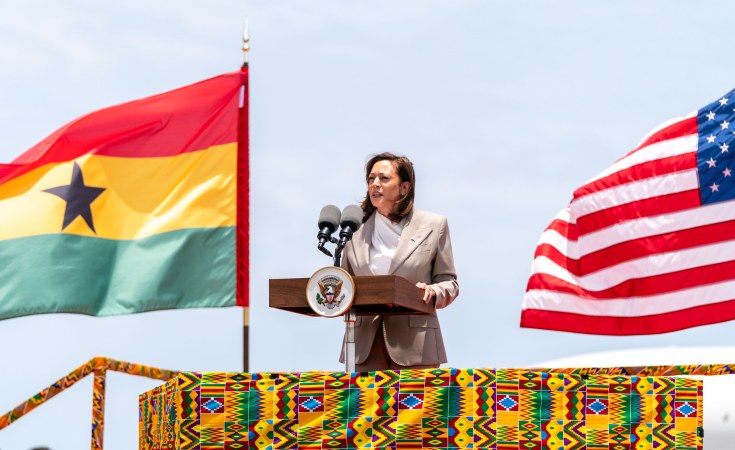US Vice-President Kamala Harris' trip to Tanzania was a landmark development for the country, the East African Community of which, it is a key member and the rapidly accelerating race to decarbonise America's supply of critical minerals.
The visit was also testimony to Tanzania's growing strategic importance as an emerging supplier of critical minerals, and the level of interest and commitment now being placed on the supply of critical metals needed to power a greener US economy and generations of electric vehicles.
The world needs to source critical minerals at a pace never before seen to fuel the batteries that will enable the green energy transition. The White House has highlighted the scope of this challenge, with its 2022 estimate that global demand for these critical minerals is set to skyrocket by 400-600 per cent over the next several decades.
For minerals such as lithium and graphite used in electric vehicle (EV) batteries, the White House estimated that global demand will increase by even more -- as much as 4,000 per cent. Battery metals include nickel, a key product for Tanzania, and a key resource for the US that was at the top of the Vice-President's agenda last week.
Lifezone Metals is now working with the Tanzanian government to open a new facility that will use this lower-emission technology to process the first cleaner nickel and other critical minerals mined in Tanzania, which, when developed, could deliver battery grade product to the US and global markets. This will position Tanzania to become an emerging supplier of responsibly sourced, low-carbon and low-sulphur dioxide emission metals to the battery and EV markets.
The US delegation's visit is also set to further the longer-term aims of the Partnership for Global Infrastructure Investment (PGII), the Biden administration's signature G7+ mission to support transformative infrastructure development. The renewed focus on, and engagement with, key African resource economies follows the African Leaders Summit hosted by President Biden in December 2022, and its goal to redefine the US' relationship with the continent.
As a landmark event, heralding the shifting geo-political dynamics catalysed by the race to net zero, the Summit was rich with the promise of new partnerships. With some 30 per cent of global mineral resources sitting across Africa, the green transition could facilitate an African transition, one that will clean up mining and supply chains equally as new technologies and processes are designed to reduce harmful emissions and better meet ESG requirements.
To lower environmental and climate footprint, much of the new metals supply needed to meet global battery demand must be produced more cleanly, at lower carbon intensity than the smelting processes used in traditional metals production, and with far fewer harmful impacts across the entire supply chain. Currently, metals smelting is responsible for 7 per cent of all global CO2 emissions according to estimates of the US Department of Energy's Advanced Research and Projects Agency-Energy.
As part of our mission to eliminate traditional smelting, Lifezone Metals has developed a lower-impact, proprietary hydrometallurgical processing technology (hydromet) that has the potential to significantly reduce carbon and other harmful emissions in nickel production.
As we recognise the huge significance of the Vice President's visit to Tanzania, we stand in full support of the momentum created by the US and G7 initiatives in this regard. I am confident that they will ensure that critical mineral production allows countries such as Tanzania to maximise the potential of their resources and future-proof their economies, while delivering a solution that aligns with the Environmental, Social and Governance (ESG) requirements of investors and automakers, and the planet's need for a greener future.
Chris Showalter is the CEO of Lifezone Metals, majority owner of the Kabanga Nickel project in Tanzania and developer of the Multi- Metals Processing Facility at Kahama.


